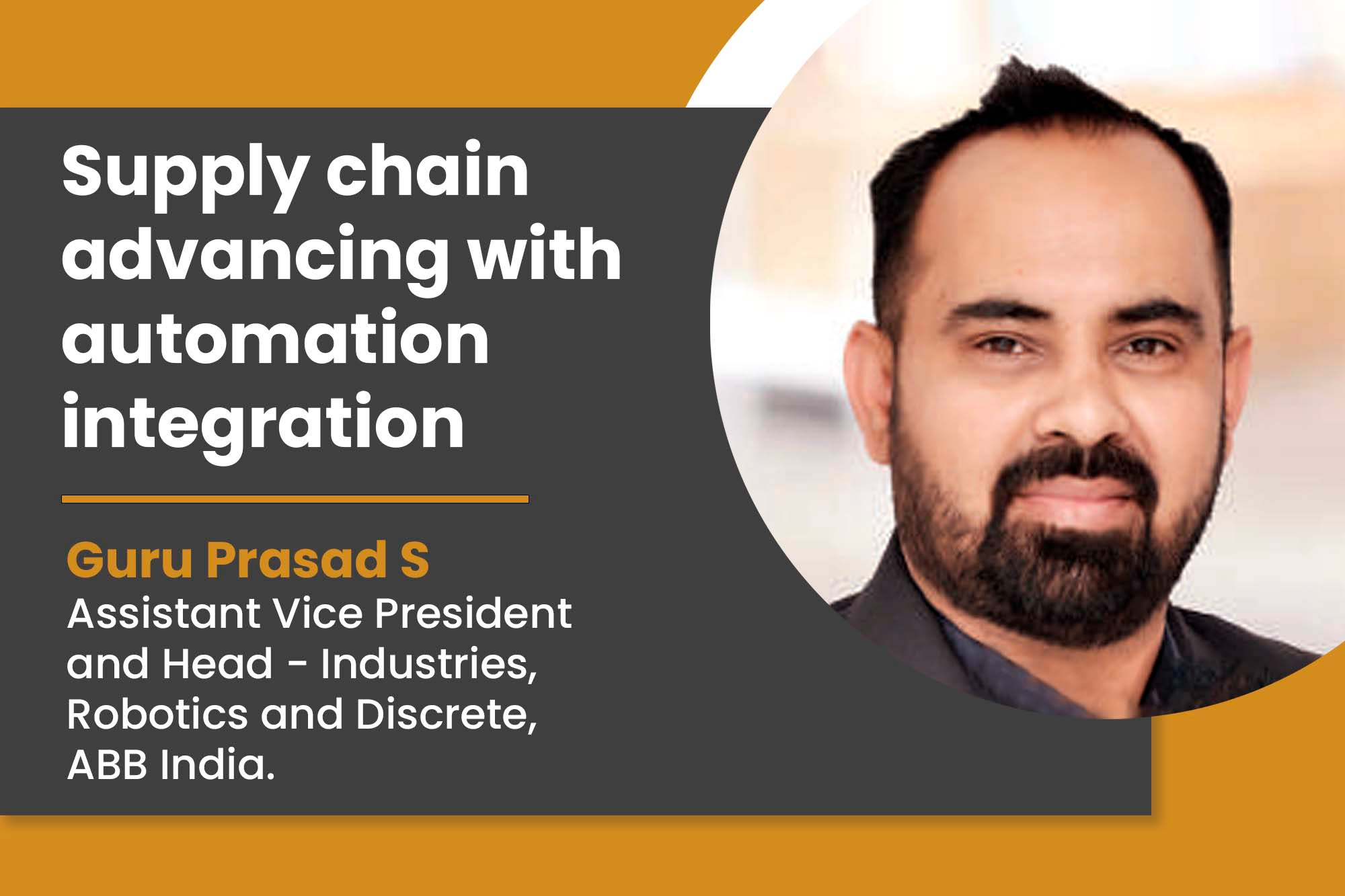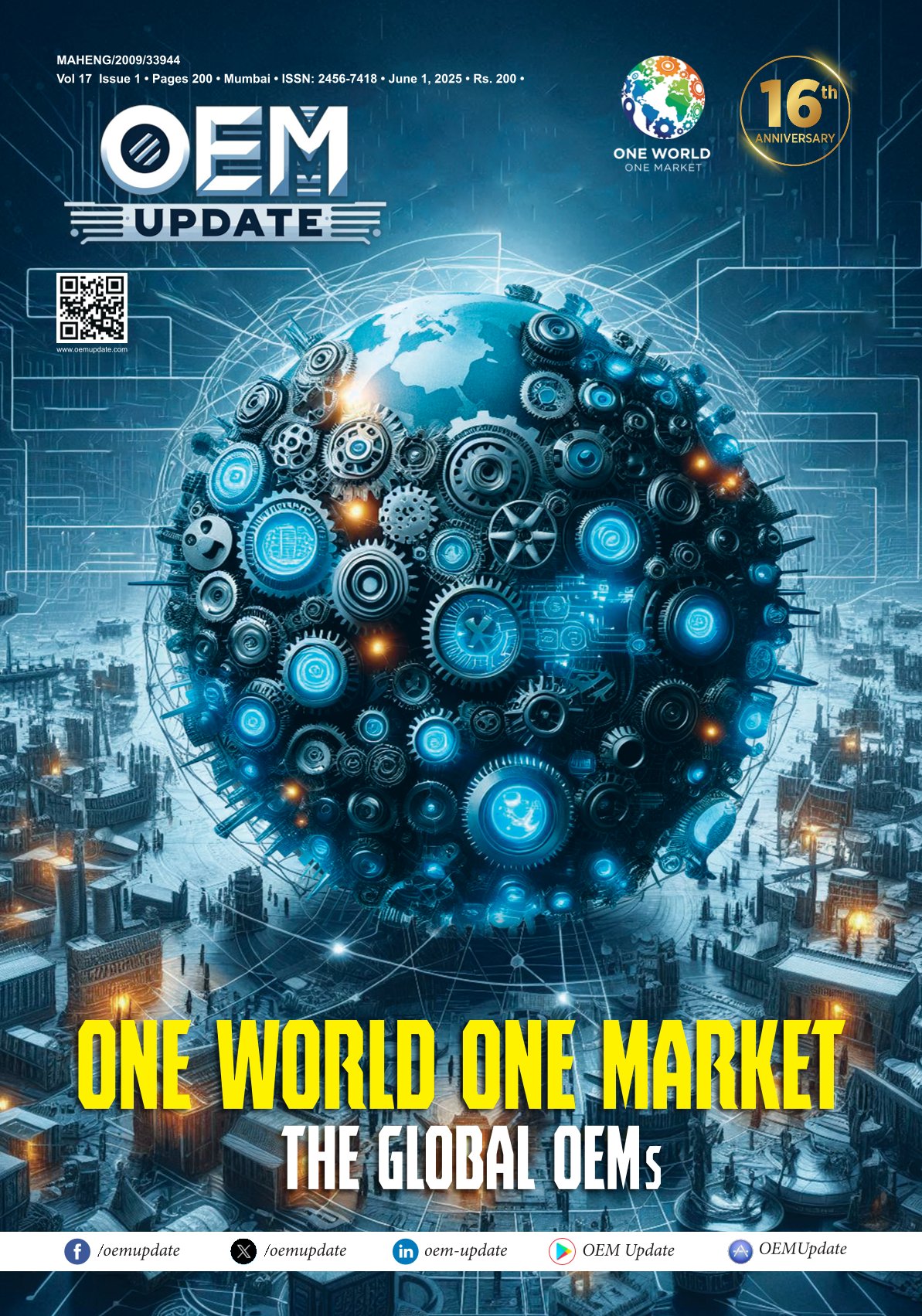Supply chain advancing with automation integration
By OEM Update Editorial February 28, 2024 3:11 pm IST
Customers are looking at automating processes for a wide range of reasons. Guru Prasad S, AVP and Head – of Industries, Robotics, and Discrete at ABB India, discuss the integration of robotics and AI in the Pharma and F&B sectors, addressing supply chain disruptions and adapting to changing consumer preferences. He shares how ABB is shaping the future of packaging automation with cutting-edge solutions.
What automation growth do you visualise for manufacturing in 2024?
While envisioning the growth of automation in manufacturing for 2024, it is crucial to recognise the immense flexibility and adaptability inherent in automation technology. This versatility offers a vast scope for developing systems tailored to the unique requirements of the Indian market. While certain countries may have a head start regarding system readiness, India is rapidly catching up.
One notable aspect of advanced robotics and automation is – its ability to be deployed and operated with minimal prerequisite training. The larger corporations and entities have already begun integrating automation into their processes. However, the accurate measure of success for robotics in India lies in the equitable adoption of these systems by MSMEs.
We are currently witnessing a historic transformation fuelled by technology. Automation is becoming increasingly accessible to customers as the market expands. At ABB, we are committed to assisting them in realising the benefits of automation for their businesses and society, thereby enabling them to achieve enhanced results.

In the Pharma and F&B sectors, how do companies leverage automation to enhance quality and optimise production processes?
In the pharmaceutical and/or food and beverage (F&B) sectors, companies are leveraging automation to improve quality and streamline production processes, considering the complexity of operations and the need for high output speeds. Machine learning and real-time data transfer are indispensable tools to match these requirements.
AI, automation, and robotics play key roles in maximising flexibility at various stages of production and distribution. They are presenting opportunities and reducing risks to supply chain security. ABB’s IRB 360 FlexPicker has emerged as the most reliable delta robot. Thanks to its world-leading motion control and cutting-edge integrated vision powered by PickMaster software. With almost two decades of experience in picking applications, ABB caters to various food and beverage production areas. It includes meats, fish, dairy, bakery, confectionery, juices, wine, coffee, tea, fruits, and vegetables.
For companies with limited experience in robotic automation, ABB provides function packages for picking applications, simplifying their entry into this domain. Additionally, ABB has a diverse range of palletising robots designed to meet various reach, payload, and cycle time requirements. These robots have become the preferred choice for global blue-chip companies and smaller food processors. This aligns with their aim to stay ahead of the competition by utilising cost-efficient, versatile, and reliable automation solutions.
Moreover, ABB offers various software products, end-of-arm tooling, and function packages to complement its core robots. This provides unprecedented flexibility in choosing solutions tailored to specific requirements in the robotic automation marketplace.In what ways automation is addressing supply chain disruptions and changing consumer preferences?
Automation revolutionises supply chain management by improving efficiency, agility, and responsiveness. Simultaneously, it enables organisations to better cater to evolving consumer preferences in a rapidly changing market landscape. Given the dynamic business demands, customers consider automating processes for various reasons. They aim to improve productivity and reliability at the right price while maintaining quality and reducing waste. Businesses today need to have enough flexibility to support the continuation of the shift from making large volumes of the same product to making much smaller lots of greater variety, i.e. ‘mass customisation’.
Product life cycles are getting shorter in several sectors and businesses. It is now necessary for manufacturers to introduce new items with quicker turnaround times—up to full speed in days rather than weeks. Customers are looking for ways to maintain facilities online and enhance the performance and efficiency of production lines since shorter life cycles increase the cost of unscheduled downtime.
The workforce is changing, with fewer workers wanting to take on tedious, dirty, delicate, or risky occupations. There is a persistent need to meet demand during peak periods while maintaining quality and consistency. This factor also plays a major role. Customers want insights, performance, productivity, dependability, and traceability for certain industries when it comes to digital. The increased complexity of manufacturing is creating increased complexity in logistics. This is driving investment in intralogistics automation systems.
How advancements in robotics and AI are shaping the future of packaging automation?
AI improves logistics and production processes’ productivity, dependability, efficiency, and flexibility. Autonomous mobile robots navigate materials, components, and finished goods independently between intelligent, networked workstations in this system. This substitutes flexible networks for the linear production lines of today. The ultimate goal is data-driven businesses with autonomous systems. This uses AI to modify behaviour in response to production demands based on their data collection.
With the help of machine learning and AI, robots will be able to self-learn and self-adjust, leading to enhanced performance. We see opportunities to advance human-robot collaboration and, within certain bounds, increase robot autonomy through machine learning and AI. In the long run, the robot should be self-learning or self-optimising. It is not about emulating human skills. Our goal is to allow robots to operate in unstructured settings. To accomplish this, the robots must be able to autonomously fix mistakes by recognising specific patterns, such as bottle labels. In the future, robots can pick up new skills from other robots.
ABB already provides several robotics and machine learning solutions. Among them are the applications of AI that allow robots to sense and react to their surroundings, examine and analyse flaws, and optimise procedures on their own. Robots having vision sensors, for example, may utilise AI to recognise objects wherever they are.
Cookie Consent
We use cookies to personalize your experience. By continuing to visit this website you agree to our Terms & Conditions, Privacy Policy and Cookie Policy.






